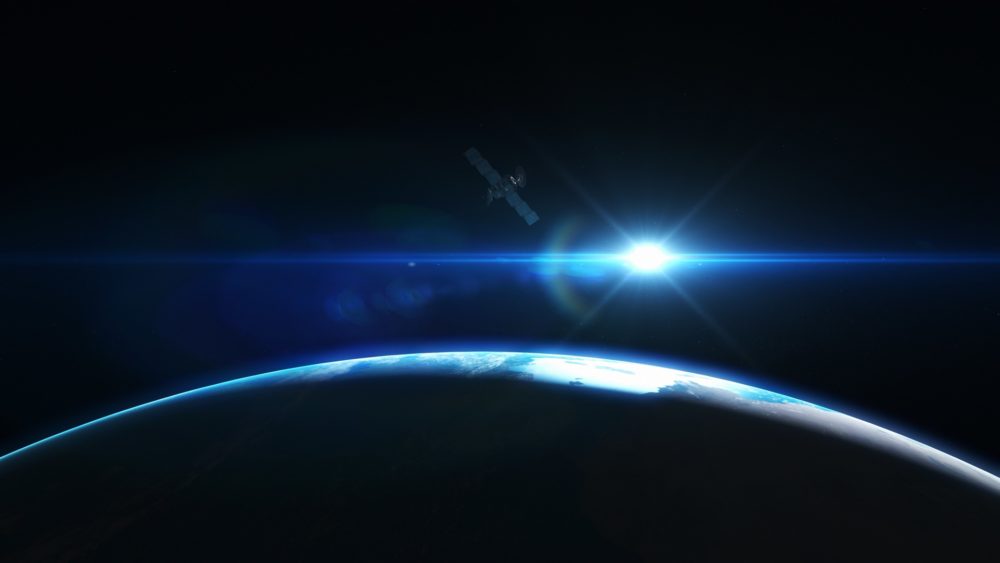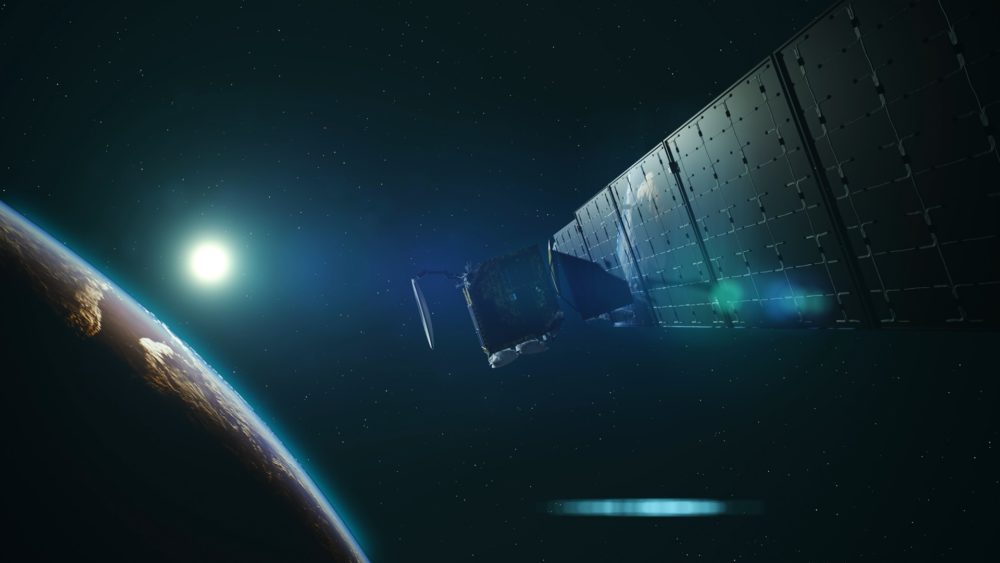
Countdown from Canberra; cloud-powered innovation ready for take-off
By Lynn McDonald, Azure Space Lead, Microsoft Australia
The Australian Space sector is a top priority for Microsoft, and we’re committed to investing in and enabling the industry as well as making space connectivity, data and technology accessible to our customers.

While I can only imagine how cold it is in space, after moving from the US to Australia, I think it’s safe to say that space is cold, but mid-winter in Canberra is freezing.
A little about my journey to Australia. In 2019, I retired as a Colonel from the US Air Force. I was fortunate to have a variety of fantastic and challenging experiences in satellite operations, space launch, operational test (for programs like GPS), space intelligence, and a number of command, deployed, and international space experiences. I have loved working in this industry, so when Microsoft contacted me about the Azure Space opportunity in early 2020 – I jumped on it!
In my work on the US team, I found my interests increasingly shifting toward supporting Australian space. I was soon introduced to a Home Affairs Global Talent Visa representative, which gave me the opportunity to relocate to Canberra to become the Azure Space Lead for Australia. I feel honoured to be a part of the Australian Space industry. It’s clearly an exciting time!
Committed to enabling the Australian Space industry
Fostering innovation and helping grow capability through a partner ecosystem is a foundational aspect of the work we’re doing in Azure Space, to lead cloud-powered innovation on and off the planet.
The Australian Space Agency’s roadmap has identified national civil space priorities and highlights the fact that Australia’s space sector touches nearly every part of the Australian economy. Microsoft is striving to support the Agency’s strategic priorities by enabling investment across the industry, partnering with forward facing businesses, and boosting innovation in impactful areas like space R&D, artificial intelligence, machine learning, edge processing, and automation.
Further, the Agency’s goal is to triple the space sector’s contribution to GDP to $12 billion and create an additional 20,000 jobs by 2030. We are helping grow the Australian Space industry by investing in the community through Microsoft’s skilling programs, supporting Australian STEM education, enabling space startups, and working with space companies to build depth in the industry.
Our approach in space is focused on integrating the Azure cloud platform with an ecosystem of space partners to develop a multi-orbit, multi-band, multi-vendor, cloud-enabled capability. We are focussed on bringing together products and partnerships to provide comprehensive satellite connectivity and data services to our customers.
Technology to enable the industry
Microsoft Azure has been selected as the high performance, trusted, resilient and scalable cloud platform to support enterprises the world over.
We are focussed on enabling our customers and partners in the Australian Space industry. Our approach is focussed on integrating the Azure cloud platform with an ecosystem of space partners to develop a multi-orbit, multi-band, multi-vendor, cloud-enabled capability. We are focussed on bringing together products and partnerships to provide comprehensive satellite connectivity and data services to our customers.
We are developing capabilities specifically focussed on enabling the space industry. Azure Orbital, now in private preview, enables customers to connect to satellites directly through Microsoft Azure. This enables data collation from numerous space and terrestrial sources and data analysis using an array of intelligent Azure services. Our partnership approach to satellite connectivity helps accelerate capability for our customers and partners. For example, Microsoft has partnered with SpaceX Starlink, ViaSat, SES, and KSAT on a variety of ventures and we are continuing to grow this ecosystem.
We are also developing digital technologies to help the space community launch faster and with mission assurance. The first of these digital tools is Azure Orbital Emulator. This is an emulation environment that conducts satellite constellation simulations at scale. This allows satellite developers to evaluate and train artificial intelligence algorithms and test networks before ever launching a single satellite.
Space is also a unique data enabler, and we are witnessing a new wave of businesses focussed on this final data frontier. We are developing tools to facilitate space data, analytics, and insights, and ensuring these insights are increasingly attainable across industries including energy, insurance, healthcare, and government.
What this means for our customers
In the same way that we don’t compete with our customers in any other sector, we don’t compete with our customers in space. Instead, we aim to be the trusted digital technology ally for space companies in the rapidly evolving Australian Space industry.
We are developing new space-enabled technologies and services to support Australian industries like Defence, agriculture, mining, and transportation. We are also focussed on supporting priorities such as sustainability, bush fire detection, and the environment with space capabilities.
Many of our Australian customers operate in remote, rugged environments and can find it hard to keep pace with the increased need for access to bandwidth and data. Resilient satellite communications – coupled with high-performance Azure compute, machine learning, and data analytics – open new opportunities for public- and private-sector customers.
These space-enabled services will offer Australians new ways to connect and will provide Australian organisations with unprecedented insights to optimise and grow their businesses.
Whether it is using the tremendous communications capacity that space provides or leveraging rich geospatial data, our technology will help businesses operate more sustainably, have greater geographic reach and engagement, and leverage insights to help industries and organisations achieve more.
We are ready to use the power of cloud, connectivity, and space technologies to help businesses re-imagine solutions to some of the world’s most challenging problems. We are also ready to work with partners as they develop cutting-edge space capabilities that will solve some of the world’s greatest challenges, both on and off the planet.
We will be making a series of important announcements about our progress and plans in the months ahead; hopefully by then Canberra will have warmed up!
















